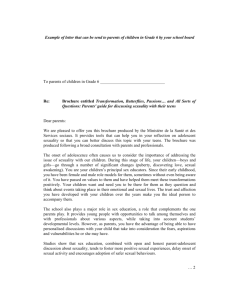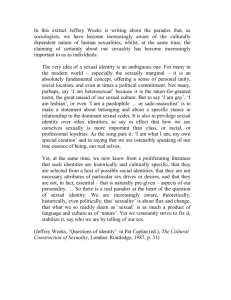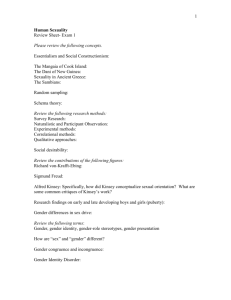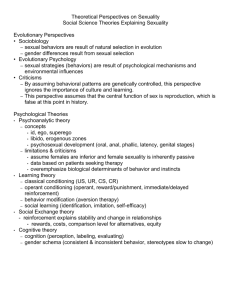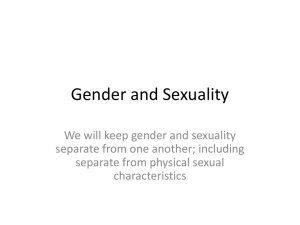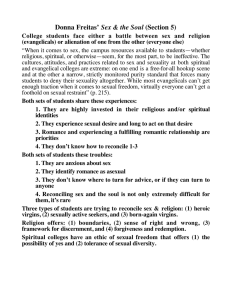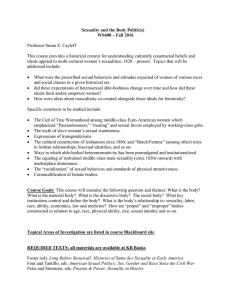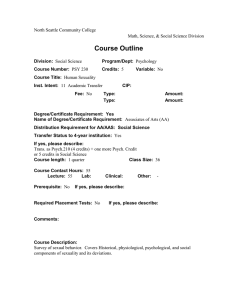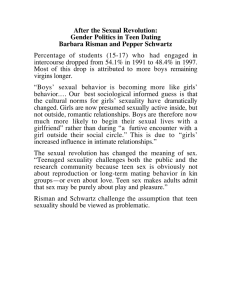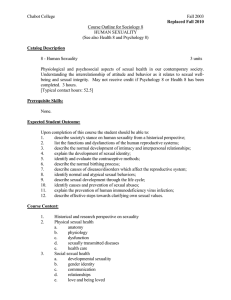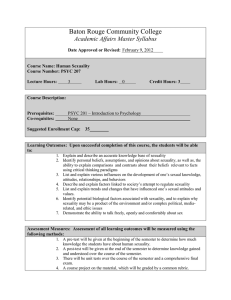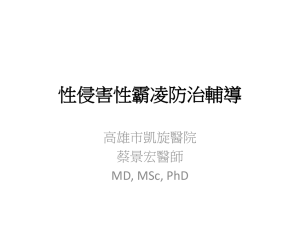Study-Guide-Exam-2 - Sites on Sites
advertisement
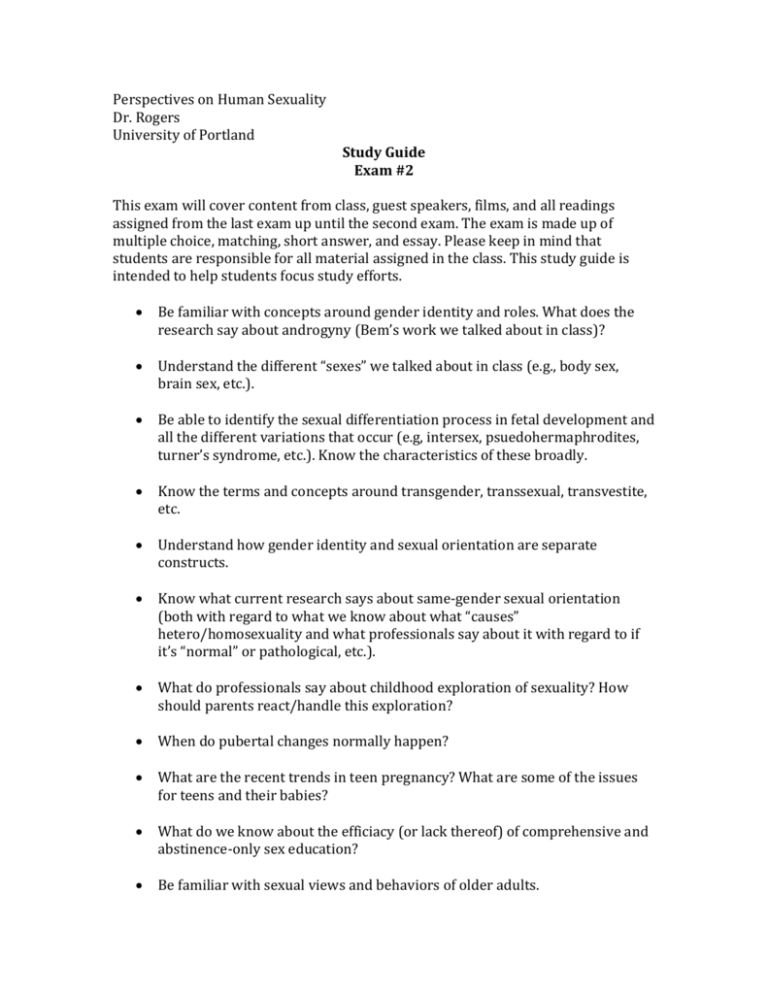
Perspectives on Human Sexuality Dr. Rogers University of Portland Study Guide Exam #2 This exam will cover content from class, guest speakers, films, and all readings assigned from the last exam up until the second exam. The exam is made up of multiple choice, matching, short answer, and essay. Please keep in mind that students are responsible for all material assigned in the class. This study guide is intended to help students focus study efforts. Be familiar with concepts around gender identity and roles. What does the research say about androgyny (Bem’s work we talked about in class)? Understand the different “sexes” we talked about in class (e.g., body sex, brain sex, etc.). Be able to identify the sexual differentiation process in fetal development and all the different variations that occur (e.g, intersex, psuedohermaphrodites, turner’s syndrome, etc.). Know the characteristics of these broadly. Know the terms and concepts around transgender, transsexual, transvestite, etc. Understand how gender identity and sexual orientation are separate constructs. Know what current research says about same-gender sexual orientation (both with regard to what we know about what “causes” hetero/homosexuality and what professionals say about it with regard to if it’s “normal” or pathological, etc.). What do professionals say about childhood exploration of sexuality? How should parents react/handle this exploration? When do pubertal changes normally happen? What are the recent trends in teen pregnancy? What are some of the issues for teens and their babies? What do we know about the efficiacy (or lack thereof) of comprehensive and abstinence-only sex education? Be familiar with sexual views and behaviors of older adults. Know Sternberg’s Triarchic Theory of Love. Understand what sexual scripts are and the ideas behind these scripts in terms of how they influence our relationships and sexuality. Have a broad understanding of masturbation as a behavior – how common is it? Who does it? Etc. Review the main ideas/concepts from all the films and guest speakers. Review all the reserved readings. Be familiar with the main ideas in each and be able to discuss them in some detail.


